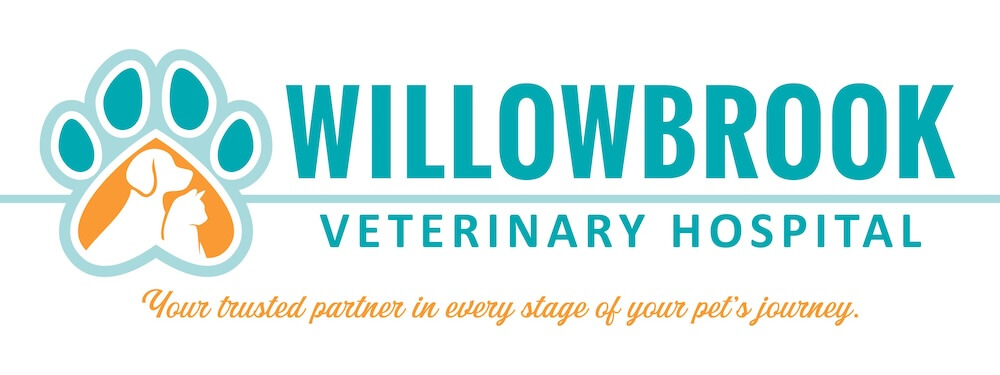Feline Wellness Exams: Keeping Your Cat Healthy at Every Age
Regular wellness exams are one of the best ways to ensure your cat lives a long, healthy life. At Willowbrook Veterinary Hospital, we provide thorough wellness care tailored to your cat’s unique needs, helping catch health issues early and keeping preventatives up to date.
What is included in a cat wellness exam?
A wellness exam is a head-to-tail physical checkup. We assess your cat’s weight, body condition, skin, coat, eyes, ears, teeth, heart, lungs, abdomen, joints, and overall demeanor. We also review your cat’s medical history, diet, lifestyle, and any concerns you have.
How often should my cat have a wellness exam?
For most adult cats, we recommend bi-annual wellness exams. Kittens and senior cats (age 7 and up) may benefit from exams more often to monitor their health more closely.
What are the benefits of regular wellness exams for my cat?
Regular exams help catch health problems early—often before symptoms appear—leading to better treatment outcomes. They also ensure your cat stays up to date on vaccinations, parasite prevention, and weight management.
How do I prepare my cat for a wellness exam?
Try to keep your cat calm before the visit. Use a secure, comfortable carrier, and bring any medical records if you’re visiting a new clinic. Jot down any questions or concerns you’d like to discuss with your vet. Many cats benefit from the use of pre-visit sedative medications given at home to allow them to have a more relaxed experience.
What should I expect during my cat’s wellness exam?
Your vet will perform a full physical exam and ask questions about your cat’s habits, diet, and behavior. We may recommend lab work or other tests based on age, health, or risk factors.
Are there specific tests or screenings performed during a wellness exam?
Yes. Routine screenings often include:
- Blood work including urinalysis (to assess organ function, detect infections, or screen for conditions like diabetes, thyroid disease, and kidney disese)
- Fecal tests (to check for intestinal parasites)
Additional tests may be recommended as needed.
How can I tell if my cat needs a wellness exam?
Even if your cat seems healthy, bi-annual wellness exams are essential for early detection. However, schedule an exam sooner if your cat shows signs of illness like vomiting, diarrhea, weight loss, changes in appetite, or unusual behavior.
What questions should I ask my vet during the wellness exam?
Consider asking about your cat’s weight, dental health, vaccination schedule, parasite prevention, diet, and any specific concerns you have about behavior or age-related changes.
What is the difference between a wellness exam and a sick visit?
A wellness exam is a routine checkup for a seemingly healthy cat. A sick visit focuses on diagnosing and treating a specific illness or issue your cat is experiencing.
How can I track my cat’s health between wellness exams?
Monitor your cat’s appetite, weight, litter box habits, energy levels, and coat condition. Keep a record of any changes and bring them up at your next visit.
What vaccinations or preventative treatments might be discussed during the exam?
Your vet will review your cat’s vaccination status (such as rabies, FVRCP, and FeLV) and discuss parasite prevention for fleas, ticks, and heartworms, tailored to your cat’s lifestyle.
How do wellness exams help in early detection of health issues?
By performing thorough exams and routine tests, your veterinarian can catch issues like dental disease, kidney problems, thyroid imbalances, and cancers early—often before they become serious.
Can wellness exams detect common feline diseases?
Yes. Regular checkups and lab work can identify diseases like diabetes, kidney disease, hyperthyroidism, and parasitic infections at early stages.
What should I do if my cat has a health concern between wellness exams?
Don’t wait—contact us as soon as you notice a problem. Early intervention can prevent minor issues from becoming serious.
How do I manage any health issues or recommendations made during the exam?
Your vet will provide clear instructions for follow-up care, medications, or lifestyle changes. We’re always here to help if you have questions after your visit.
Are there additional services or tests recommended based on my cat’s age or health status?
Yes. Senior cats, for example, may need more frequent blood work, blood pressure checks, or screening for arthritis and cognitive changes. Kittens require a tailored vaccine and deworming schedule.
How do I prepare my cat’s medical history for the wellness exam?
Bring any medical records you have, including vaccination history, previous lab results, and a list of medications or supplements your cat takes. If you are a new client, please make sure your veterinarian has any prior medical records at least 24 hours prior to your appointment. This allows them adequate time to review your cat’s medical history and be prepared.
What should I do if my cat shows signs of stress during the exam?
Let us know if your cat is anxious. We can use calming techniques, pheromone sprays, and gentle handling. For highly stressed cats, we may recommend pre-visit calming medications.
How can I make my cat’s wellness exam a positive experience?
Get your cat used to their carrier at home, reward them after visits, and keep the trip calm and quiet. Regular visits can help your cat become more comfortable over time.
How much does a cat wellness exam cost?
Costs vary depending on your cat’s needs and any additional tests specific to your cat’s age or condition. Contact us for current pricing.
What happens if I miss a wellness exam for my cat?
Life happens, but it’s important to reschedule as soon as possible. Skipping regular exams can delay the detection of health problems and cause preventatives to lapse.
Schedule Your Cat’s Wellness Exam Today!
Regular checkups keep your cat happy, healthy, and thriving. Call Willowbrook Veterinary Hospital to book your cat’s wellness exam or ask us any questions about your cat’s care.
